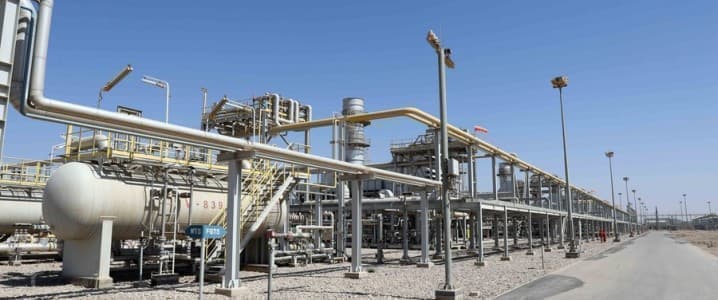The relationship between Iraq and the United States has been a complex dance of diplomacy and strategic maneuvering. Despite Washington’s desire for a deeper relationship with Iraq following the end of combat missions in 2021, Iraq has continued to maintain ties with Iran, particularly in the energy sector.
This is evident in Iraq’s recent extension of its gas deal with Iran, despite promises to reduce imports from its neighbor. The length of this new deal underscores Iraq’s commitment to its relationship with Iran, potentially straining its ties with the U.S.
Iraq’s strategic importance in the Middle East, coupled with its vast oil and gas reserves, has made it a focal point for U.S. diplomatic efforts. However, Iraq’s actions, such as extending gas deals with Iran, suggest a divergence from Washington’s interests. Despite receiving financial aid from the U.S., Iraq has shown a willingness to prioritize its relationship with Iran, which has significant implications for regional dynamics.

U.S. Hopes in Iraq Dashed with Longest Gas Deal Signed with Iran (Credits: Gulf Insider)
The gas deal between Iraq and Iran not only provides crucial energy resources for Iraq but also serves as a source of revenue for Iran. This financial dependence on Iran complicates Iraq’s position vis-à-vis the United States, as Washington views Iraq’s cooperation with Iran as detrimental to its interests. The shared oil fields between Iraq and Iran further intertwine their economies, allowing Iran to circumvent sanctions and maintain its economic stability.
Former Iraqi Prime Minister Mustafa al-Kadhimi’s actions exemplify Iraq’s balancing act between the U.S. and Iran. Despite assurances to reduce gas imports from Iran, al-Kadhimi ultimately extended the gas deal, drawing criticism from Washington and resulting in new sanctions. This pattern highlights Iraq’s willingness to navigate between competing interests, balancing its relationships with both Iran and the U.S.
The recent five-year gas import deal with Iran signifies a potential shift in Iraq’s foreign policy priorities. By forging closer ties with Iran, Iraq may be signaling its willingness to align with Tehran and other countries like China and Russia. These alliances offer Iraq economic opportunities and geopolitical leverage against the United States, further complicating the regional dynamics in the Middle East.
China’s increasing involvement in Iraq, as evidenced by infrastructure projects and agreements, further underscores Iraq’s pivot away from the U.S. and towards other global powers.
The Iraq-China Framework Agreement, in particular, highlights Iraq’s strategic realignment and its willingness to cooperate with China in exchange for economic investments and infrastructure development. This shift has implications for regional stability and U.S. influence in the Middle East as Iraq seeks to diversify its alliances and pursue its own interests.























